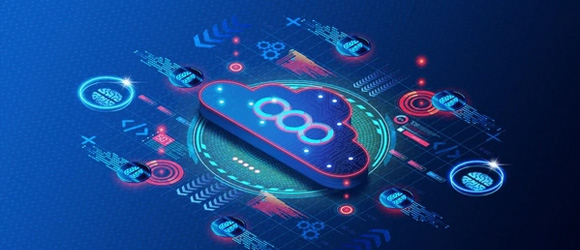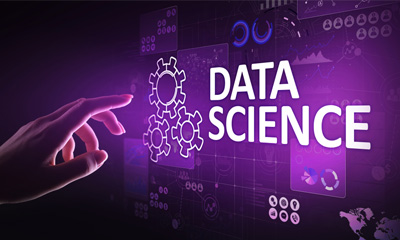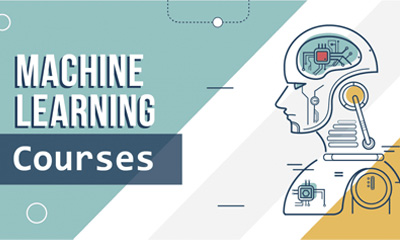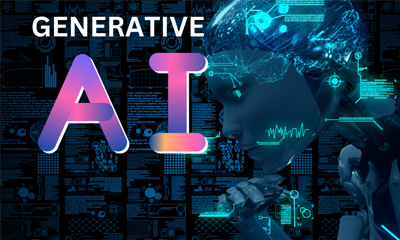MLOps
This comprehensive MLOps course is designed to bridge the gap between data science and operations. By the end of this course, participants will be able to streamline the machine learning lifecycle from development to production, ensuring smooth and efficient deployment of models.
Course Rating :
4.8 (926)

Course Overview
This comprehensive MLOps course is designed to bridge the gap between data science and operations. By the end of this course, participants will be able to streamline the machine learning lifecycle from development to production, ensuring smooth and efficient deployment of models. This course covers the principles, practices, and tools necessary to manage the end-to-end machine learning pipeline, including data preprocessing, model training, deployment, and monitoring.
Key Points
Introduction to MLOps:
- Understanding MLOps and its significance.
- Differences between traditional DevOps and MLOps.
Machine Learning Lifecycle:
- Overview of the machine learning pipeline.
- Key stages: data collection, data processing, model training, model evaluation, deployment, and monitoring.
Data Engineering for MLOps:
- Data ingestion and transformation.
- Feature engineering and selection.
- Data versioning and lineage tracking.
Model Training and Evaluation:
- Model selection and hyperparameter tuning.
- Cross-validation techniques.
- Metrics for model evaluation.
Model Deployment:
- Deployment strategies (batch, online, A/B testing).
- Serving models in production.
- Containerization with Docker and orchestration with Kubernetes.
Continuous Integration/Continuous Deployment (CI/CD):
- Setting up CI/CD pipelines for ML models.
- Automation of testing and deployment processes.
Monitoring and Maintenance:
- Monitoring model performance and data drift.
- Retraining models and maintaining accuracy.
- Logging and alerting for production systems.
Tools and Technologies:
- Overview of popular MLOps tools (Kubeflow, MLflow, TFX).
- Cloud platforms and services (AWS SageMaker, Google AI Platform, Azure ML).
Best Practices and Case Studies:
- Industry best practices for MLOps.
- Real-world case studies and examples.
Course Curriculum
Understanding MLOps
- Definition and scope of MLOps
- Key components: Collaboration, Continuous Integration, Continuous Deployment, Continuous Training, Continuous Monitoring
- Benefits and challenges of implementing MLOps
Basic Concepts
- Overview of the machine learning lifecycle
- Key differences between traditional DevOps and MLOps
- Roles and responsibilities in an MLOps team (Data Scientist, ML Engineer, DevOps Engineer, Data Engineer)
Getting Started with Python
- Installing Python and setting up the development environment
- Python basics: Data types, control structures, functions, modules
- Overview of Python libraries for machine learning: NumPy, pandas, scikit-learn, matplotlib
Data Collection
- Identifying data sources: Databases, APIs, web scraping
- Data collection techniques and tools
- Handling different data formats: CSV, JSON, XML
Data Cleaning and Preprocessing
- Identifying and handling missing values
- Data normalization and standardization techniques
- Handling categorical data: One-hot encoding, label encoding
- Feature engineering: Creating new features, feature selection
Data Versioning
- Importance of data versioning in MLOps
- Tools for data versioning: Data Version Control (DVC), Git
- Integrating data versioning with ML pipelines
Introduction to Machine Learning
- Types of machine learning: Supervised, unsupervised, semi-supervised, reinforcement learning
- Common machine learning algorithms: Linear regression, logistic regression, decision trees, k-means clustering
Model Training
- Preparing data for training
- Training a model using scikit-learn
- Hyperparameter tuning: Grid search, random search
Model Evaluation
- Evaluation metrics for classification: Accuracy, precision, recall, F1 score, ROC-AUC
- Evaluation metrics for regression: Mean Absolute Error (MAE), Mean Squared Error (MSE), R-squared
- Cross-validation techniques: K-fold, stratified K-fold, leave-one-out
Deep Learning Basics
- Introduction to neural networks: Architecture, activation functions, forward and backward propagation
- Overview of deep learning frameworks: TensorFlow, Keras, PyTorch
- Building and training a simple neural network using TensorFlow/Keras
Model Optimization
- Techniques for improving model performance: Regularization, dropout, early stopping
- Hyperparameter tuning using libraries: Optuna, Hyperopt
Ensemble Methods
- Introduction to ensemble learning: Bagging, boosting, stacking
- Implementing Random Forest, Gradient Boosting, AdaBoost using scikit-learn
- Using XGBoost and LightGBM for model training and evaluation
Introduction to MLOps Tools
- Overview of popular MLOps tools: Kubeflow, MLflow, TFX (TensorFlow Extended)
- Comparison of features and use cases
Docker for MLOps
- Basics of containerization: What is Docker, benefits of using Docker
- Creating and managing Docker containers: Dockerfile, docker-compose
- Best practices for containerizing ML models
Kubernetes for MLOps
- Introduction to Kubernetes: Concepts, architecture, components
- Deploying ML models on Kubernetes: Creating a Kubernetes cluster, deploying pods, services, and deployments
- Scaling and managing ML workloads with Kubernetes
Deployment Strategies
- Batch vs online deployment: Pros and cons
- A/B testing and canary releases for ML models
- Rolling updates and blue-green deployments
Serving Models
- Using Flask for building simple web APIs to serve ML models
- Introduction to model serving platforms: TensorFlow Serving, TorchServe, BentoML
- Best practices for scalable and reliable model serving
Deployment on Cloud
- Overview of cloud platforms for ML: AWS, Azure, Google Cloud
- Deploying models on AWS SageMaker, Azure ML, and Google AI Platform
- Introduction to serverless deployment with AWS Lambda, Google Cloud Functions
Introduction to CI/CD
- Importance of CI/CD in MLOps
- Principles of CI/CD: Automated testing, continuous integration, continuous delivery, continuous deployment
- Overview of CI/CD tools: Jenkins, GitLab CI, CircleCI, GitHub Actions
Setting up CI/CD Pipelines
- Creating CI/CD pipelines for ML projects
- Automating model training, testing, and deployment processes
- Integrating CI/CD pipelines with version control systems (e.g., Git)
Monitoring CI/CD Pipelines
- Ensuring pipeline reliability and performance
- Implementing logging and alerting mechanisms
- Handling pipeline failures and rollbacks
Model Monitoring
- Importance of monitoring models in production
- Tools for model monitoring: Prometheus, Grafana, ELK Stack (Elasticsearch, Logstash, Kibana)
- Setting up dashboards and alerts
Handling Data Drift
- Understanding data drift and its impact on model performance
- Techniques for detecting data drift: Statistical tests, monitoring distributions
- Strategies for mitigating data drift: Retraining models, updating features
Model Retraining
- Importance of continuous model retraining
- Setting up automated retraining pipelines
- Best practices for managing retrained models
Case Studies
- Case studies from different industries: Healthcare, finance, retail, manufacturing
- Analysis of successful MLOps implementations
- Key lessons learned from real-world deployments
Best Practices
- Industry standards and guidelines for MLOps
- Ethical considerations in MLOps: Fairness, transparency, accountability
- Ensuring security and compliance in ML operations
Capstone Project
- End-to-end project to apply all learned concepts
- Defining project scope and objectives
- Building, deploying, and monitoring a machine learning model
- Presentation and peer review of the capstone project
Advanced MLOps Concepts
- Introduction to federated learning: Concepts, use cases, challenges
- Overview of edge AI: Deploying models on edge devices, use cases, challenges
Future Trends in MLOps
- Emerging technologies and tools in MLOps
- Predictions for the future of MLOps: Automation, AI-driven operations, advanced monitoring
Preparing for the Future
- Lifelong learning and upskilling in MLOps
- Resources for continued education: Online courses, books, communities
- Building a professional network in the MLOps field
Final Review and Certification
- Recap of key concepts and skills learned.
- Preparing for the certification exam
- Presentation and feedback on the capstone project
- Awarding of certificate of completion
- Networking and community building opportunities
Learning Outcome
By the end of this course, participants will be able to:
- Understand the principles and importance of MLOps.
- Build and manage machine learning pipelines from data ingestion to model deployment.
- Implement CI/CD pipelines for continuous integration and deployment of ML models.
- Utilize tools like Docker, Kubernetes, and various MLOps platforms to automate and scale ML workflows.
- Monitor and maintain machine learning models in production to ensure they remain accurate and relevant.
- Apply industry best practices to streamline the ML lifecycle and improve operational efficiency.
Who this course is for?
Data Scientists: Looking to streamline the deployment and management of machine learning models.
Machine Learning Engineers: Seeking to enhance their knowledge of operations and automation in ML.
DevOps Engineers: Interested in expanding their skills to include machine learning operations.
Software Engineers: Looking to transition into the field of machine learning and understand its operational aspects.
IT Professionals: Wishing to gain insights into the operationalization of AI and machine learning solutions.
FAQs
A basic understanding of machine learning concepts and some experience with Python programming are recommended.
The course is designed to be completed in 8 weeks, with a commitment of 4-6 hours per week.
Yes, the course includes practical labs and projects to apply the concepts learned in real-world scenarios.
You will need a computer with internet access. All necessary software and tools will be provided or available for free online.
Yes, you will have lifetime access to the course materials, including video lectures, slides, and code examples.
Participants will have access to discussion forums, live Q&A sessions, and direct support from instructors.
Yes, there will be a final project that requires participants to build and deploy a machine learning model using the techniques covered in the course.
We offer a 14-day money-back guarantee if you are not satisfied with the course.
Yes, we offer discounts for groups and corporate teams. Please contact us for more details.
Certifications
Google Cloud Professional Machine Learning Engineer
Description: This certification demonstrates proficiency in designing, building, and productionizing ML models on Google Cloud. It covers MLOps practices including model deployment, monitoring, and automation.
Key Topics:
- Designing and building machine learning models
- Automating and orchestrating ML pipelines
- Monitoring, optimizing, and maintaining ML solutions
Preparation Resources:
- Google Cloud Professional Machine Learning Engineer Training
- Practice exams and study guides
Certification Link:
- Google Cloud Professional Machine Learning Engineer
AWS Certified Machine Learning – Specialty
Description: This certification validates your expertise in using AWS services to build, train, tune, and deploy ML models. It includes MLOps practices such as model deployment and monitoring on AWS.
Key Topics:
- Selecting and training ML models
- Deploying and operationalizing ML solutions
- Automating data pipelines and model workflows
Preparation Resources:
- AWS Certified Machine Learning – Specialty Exam Guide
- AWS training and practice tests
Certification Link:
Microsoft Certified: Azure AI Engineer Associate
Description: This certification is designed for AI engineers who use Azure’s cloud services to build, manage, and deploy AI solutions, including MLOps practices such as automated ML pipelines and model monitoring.
Key Topics:
- Designing and implementing AI solutions
- Integrating AI models into production environments
- Monitoring and maintaining AI solutions
Preparation Resources:
- Azure AI Engineer Associate Learning Path
- Azure training and practice exams
Certification Link:
Certified Kubernetes Application Developer (CKAD)
Description: This certification validates your skills in designing, building, and deploying cloud-native applications on Kubernetes, an essential skill for MLOps.
Key Topics:
- Kubernetes core concepts
- Configuration, multi-container pods, observability
- Services & networking, state persistence
Preparation Resources:
- Certified Kubernetes Application Developer (CKAD) Training
- Practice exams and labs
Certification Link:
- Certified Kubernetes Application Developer (CKAD)
Databricks Certified Professional Data Scientist
Description: This certification demonstrates your ability to perform data science and MLOps tasks on the Databricks platform, including model development, deployment, and automation.
Key Topics:
- Building and deploying ML models on Databricks
- Managing and automating ML workflows
- Monitoring and optimizing model performance
Preparation Resources:
- Databricks Certification Preparation
- Training courses and practice exams
Certification Link:
- Databricks Certified Professional Data Scientist
TensorFlow Developer Certificate
Description: This certification demonstrates proficiency in using TensorFlow to build and deploy ML models. It covers essential MLOps skills like model deployment and monitoring.
Key Topics:
- Core TensorFlow APIs and model-building techniques
- Building and training neural networks
- Deploying and optimizing TensorFlow models
Preparation Resources:
- TensorFlow Developer Certificate Program
- TensorFlow tutorials and practice exams
Certification Link:
- TensorFlow Developer Certificate
Certified MLOps Engineer by Coursera (offered by IBM)
Description: This certification program covers essential MLOps skills such as deploying, monitoring, and automating ML models. It includes practical experience with popular MLOps tools and frameworks.
Key Topics:
- MLOps fundamentals and best practices
- Deploying ML models in production
- Automating ML pipelines and monitoring models
Preparation Resources:
Certification Link:
These certifications will help you validate your skills in MLOps, making you more attractive to employers and better equipped to handle the complexities of deploying and managing machine learning models in production environments.
Enroll Free Demo Class
Have Any Questions ?
- 521 Dyson Rd HainesCity FL 33844
- info@rbcloudgenx.com
- +1 8043007153
Prerequisites
- Lorem ipsum dolor sit adipiscing elit.
- Lorem ipsum dolor sit adipiscing elit.
- Lorem ipsum dolor sit adipiscing elit.
- Lorem ipsum dolor sit adipiscing elit.
Our Other Courses
Data Science is an interdisciplinary field that combines statistical analysis, machine learning, and domain expertise to extract insights from data.
Machine Learning is a branch of artificial intelligence (AI) that enables systems to learn from data and improve over time without being explicitly programmed.
The Artificial Intelligence (AI) course is designed to provide a comprehensive introduction to the concepts, techniques, and applications of AI.
This comprehensive Generative AI course is designed to empower participants with the knowledge and skills to harness the power of artificial creativity.
Rate This Course !
Click on a star to rate it!
Average rating 0 / 5. Vote count: 0
No votes so far! Be the first to rate this post.





